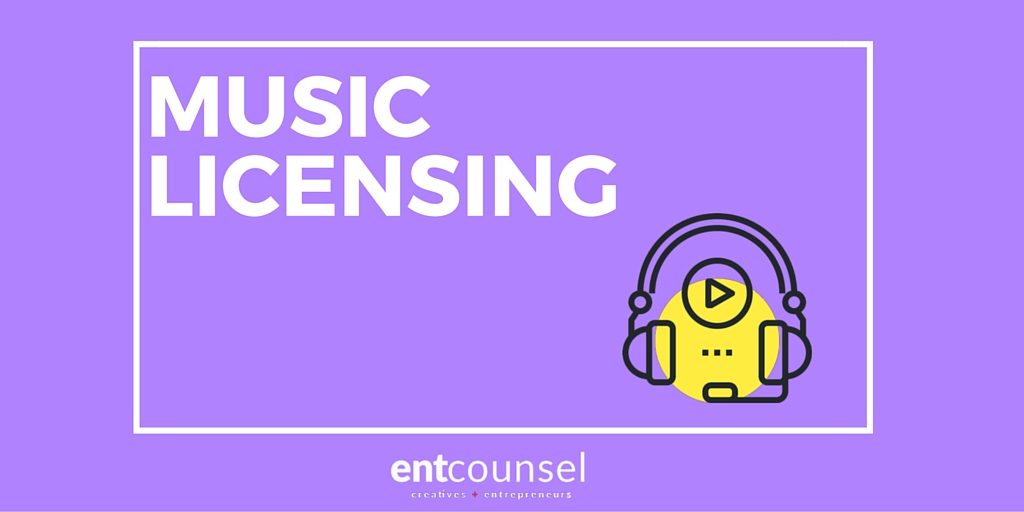Music licensing can be complicated given all the rights that need to be cleared. Music is protected by copyright law and consists of a bundle of rights.
Given the number of rights involved with music, a musician may decide to work with someone else to help them administer these rights and make money from them. A copyright owner of music can licence the music and earn revenue in a number of ways: mechanical, public performance, synchronization, prints and grand rights which are further described below. Typically, a musician may assign their publishing rights to a publishing company or may adminster these rights on their own.
Artists need to evaluate whether it’s a good idea to work with a publisher, label, or manager who take the publishing, recording, and merchandising rights claiming they can do everything for an artist (i.e. that they are a one stop shop). The artist needs to evaluate whether the label is really a publisher and actively pursuing master and synchronization licences with music supervisors. The various bundle of rights involved with music are outlined below.
Film and TV Music Licensing
When dealing with film and/or tv music licensing, you are dealing with music publishers, record labels, collectives, performing rights societies, managers and music supervisors
-
Synchronization License
- If a Producer has a synch license, then a producer can record their own version of the song which is helpful especially if the producer is unable to get the record label to grant them the master use rights of a particular recording. A synchronization rights is the right to synchronize the music to visual images. A film, television show, advertisement, video game or online web property would require a synchronization licence if they want to use a particular musical composition to the visual images they will be showing online, on television or film.
-
Soundtrack Rights
- Each affiliate of a record label usually controls the company’s repertoire in its home territory).
-
Mechanical License for Records (DVDs)
- The merchanical rights are the rights to make a mechanical contrivance of the music. The Canadian Musical Reproduction Rights Association (CMRRA) administers these rights. It provides the right to reproduce the music on a record or digital download. It is the licence to reproduce the song on a sound recording and is a major source of income for songwriters. It is required when a record company wants to record a performance of a song. It must get permission from the publisher, author or person who administers the song.
-
Public Performance (theatres)
- Public performance rights are the rights to perform the music in public. Socan is the copyright collective agency that administers these rights. This type of licence is usually required by restaurants, broadcasters, shops, pubs etc. It includes the right to publicly perform a song, broadcast it and make it available to the public.
-
First Use Rights
-
Master Use (only required if you are using the original soundtrack or sound recording of the music).
-
Print Rights (Right to Copy lyrics)
- Prints rights are the right to print music as sheet music.
-
Subsidiary Rights Music Licensing
- Subsidiary Rights are additional rights such as the right to arrange, adapt or translate music.
-
Grand Rights Music Licensing
- Grand rights are the rights to use the music in association with a theatrical, dramatic work or presented live on stage which includes musical, plays, musical, musical comedy, oratorio, choral work, opera, revue or ballet.
TV and film producers have to be cautious of sound-a-likes and misappropriation of personality if you use a singer that sounds very similar to the original artist. You may need a music licence in this instance.
When deciding whether to use a music publisher to administer one’s rights, look at the reputation of the publisher and their ability to develop music and get music deals. If they are providing a good advance up front, that may be a good reason to consider working with them. A music writer should receive no less than 50% of net income in any publishing agreement. Music publishing involved the administration, promotion, licensing and exploitation of musical copyrights. Some of the musical rights in music are administered by copyright collectives such as SOCAN for the public performance rights and the CMRRA for the mechanical rights. However, rights such as synchronization and master use may be administered by the musical themself or a third party music publisher.
A standard publishing agreement also known as a songwriter-publisher or full publishing agreement may be structured on a 50/50 net basis which means the writer is entitled to the writers share (normally 50% of the revenue) and the publisher entitled to the publisher’s share (typically 50%).
In a co-publishing arrangement, the writer or co-publisher would get 25% of the publisher’s share of revenue plus 50% of the writer’s share. The other co-publisher is entitled to 25% of the revenue and obtains half of the copyright.
Entcounsel provides legal services to musicians and artists including music recording agreements, publishing agreements, music licensing, music clearance issues and more.



